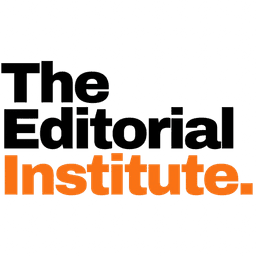In today’s healthcare industry competitiveness is taking the limelight more than ever. Making your business successful is not as easy as using innovative technology or providing top-quality services. When your ultimate goal is to foster your business to the target audience, “Thought Leadership” appears and plays an important role in guiding the transformation, by driving new perspectives, building meaningful connections with stakeholders, and making effective improvements in patient care, technology, and policies. The most important aspect is staying ahead of the competition.
Thought Leadership in Healthcare
Being a successful “Thought Leader” means balancing both talent and effort as perceptive skills. In the domain of healthcare the trust of becoming a Thought Leader excels the mere recognition. This could range from developing new treatments to advocating for patient-centric medical practices that elevate the standards of health care services. Thought Leaders aren’t just experts in specific fields, they are visionaries who can predict industry trends and influence positive transformation.
Are you wondering why HealthCare needs Thought Leaders?
To Guide Innovation-
Staying updated with emerging technologies such as Artificial Intelligence in Healthcare, Telehealth, MHealth, Extended Reality, BlockChain, and The IoT, for making the healthcare system more accessible and efficient. This spotlights how Thought Leaders ensure the adoption of technology to focus on patient care quality.
To Predict the complex challenges-
Thought Leaders are proactive in predicting and addressing complex challenges. They come up with fresh perspectives to find solutions for the challenges that arise in patient care, medical research, and health disparities.
Fostering a Culture of Collaboration-
As we know, Health care is interconnected with different sectors, policies, technologies,
Thought Leaders will encourage and collaborate with the cross border experts, institutions, or even patients to understand the diverse perspectives. No single professional or institution solves their challenges in Isolation, with the help of their incredible experiences and expertise they build a strong bond between healthcare professionals and the brands they endorse.
Framing Policies and Regulatory Frameworks-
Policy in the healthcare sector is constantly evolving, and the changing regulatory frameworks will affect areas like patient rights, data privacy, drug approvals, and insurance policies. Here the Thought Leaders come into the picture and play a vital role in instrumenting these policies by providing expert opinions, research recommendations, and patient-centric thoughts to the policymakers and regulatory bodies.
Key Aspects Of Effective Thought Leadership in Health Care
Thought Leadership in the healthcare industry plays a powerful strategy in establishing oneself or the organization as a trusted voice in the healthcare sector. It necessitates showcasing innovation, sharing meaningful insights, and valuable discussion regarding current and emerging trends in healthcare services, patient care, and technology. Below are the key elements for building an effective thorough leadership approach in the healthcare space.
- Develop Big Ideas for Leadership in Healthcare-
In simple terms, thought leadership is nothing but using big ideas to position your brand to stand out from others. Thought Leadership in healthcare means developing big ideas into great solutions for better patient care, enhancing efficiency, and providing accessible healthcare.
For example India’s execution of “Telemedicine” has built a bridge between the people from rural areas and doctors, allowing them to consult the patients remotely. Another big idea that brought a change in Healthcare is AI, like IBM’s Watson, assists doctors in diagnosing diseases and recommending treatments. By thinking out of the box, healthcare leaders can create better solutions that change the way people receive care and eventually save lives.
2. Grow Thought Leadership engagement through Videos-
Video content is the most popular marketing strategy that anyone can use to engage and target our audience. Video Marketing can be a potential tool in Healthcare delivering high-quality videos with visuals and simple explanations helps to educate patients regarding complex medical content, preventive care disease management, and surgical procedures. One can use Thought leadership in marketing strategies also to get most out of it.
Video Content also helps to Increase brand awareness by showcasing advanced facilities, expert doctors, and patient success stories, which develop Trust and credibility. Additionally, platforms like YouTube and Social Media make these videos more accessible and cost-effective reaching both Urban and Rural audiences.
Example-
Indian Health Care providers, “Apollo Hospitals” use animated videos to explain procedures like Angioplasty, Dental Implant, Robotic Heart Surgery, and so on. Making it easier for patients to understand the procedures and feel comfortable.
3. The power of collective leadership-
In healthcare, having collaborative leadership is a real game-changing moment. Connecting with Subject Matter Experts and sharing different viewpoints actually creates a transparent working environment and encourages open communication and strong relationships among the partners who understand how their work influences and intersects with other teams across the healthcare system.
For Example, the Ayushman Bharat Scheme in India talks about how hospitals, insurance providers, and government agencies came together to provide health coverage to millions of underserved citizens. During COVID-19, collaborative leadership plays a vital role globally. All the Scientists, governments, and private organizations worked together to develop a vaccine and distribute it at record speed to the public. Such teamwork holistically addresses the challenges and provides immediate solutions to it.
4. Shape the Health Care Expertise through Thought Leadership-
In Health Care Thought Leadership plays an important role in shaping healthcare expertise by sharing innovative ideas, insights and best practices that improve progress in the industry. By publishing research articles, initiating discussions, and addressing challenges they set benchmarks for quality and efficiency.
Example- Public health campaigns and Q&A sessions with both the patients and healthcare create a greater impact. Dr. Jon Keevil, vice president of Clinical Decision Support at EBSCO emphasizes the Patient-centric model. Here where patients actively participate in their treatment. Rather than telling them ‘This is the medicine that you should take,' doctors should empower them to make decisions to align with their values.
5. Bridging the gap between Vision to Execution-
In Healthcare, thinking about big visions is exciting but implementing them is a real challenge. Thought Leadership focuses on clear instructions, Collaborative problem solving, and innovative solutions which helps professionals track the complexities of their field. By explaining the “How” instead of just “What”, leaders can offer guidance step-by-step to tackle the greatest challenges and move towards those larger goals.
Example-
Telemedicine Platforms like Practo and Apollo 24/7 turned the idea of remote healthcare into reality with the help of technology and bridged a gap between doctors and patients even in rural areas. Another effective execution done by Dr. Abhay and Dr. Rani Bhang, founders of the Society for Education, Action, and Research in Community Health (SEARCH) transformed rural healthcare by providing training for rural women under the “Home Based Newborn Care Program” which helped to reduce the infant mortality rates in Maharashtra Gadchiroli district and later adopted as a national strategy.
Benefits of Thought Leadership in HealthCare
- Credibility & Trust-
In Healthcare, credibility and trust play a vital role. Here our Thought Leaders reveal themselves to position healthcare organizations and expertise as trusted voices in the industry. Building faith among the patients, peers, and partners, and providing valuable insights on evolving medical practices increases the credibility
- Enhance Engagement-
Staying connected and informed related to their medical state and healthcare norms will enhance engagement by fostering trust with the patients, empowering patients to make decisions about their care, and promoting better patient outcomes. By Staying up to date on the latest healthcare trends, and policies thought leaders can offer timely accurate advice could create a more meaningful connection with their audience.
- Build Networking and Partnership-
In healthcare building a good network plays a crucial part. Thought Leaders opens the door for new collaborations with different healthcare providers, institutions, and technology companies. Sharing innovative insights and valuable thoughts can lead to health partnerships that drive growth and innovation.
- Patient-Centric Innovations-
Thought healthcare leaders often are experts in patient-focused innovations. Be it from building valuable partnerships to always staying ahead in understanding the current trends to educate the patients. They always take a stand for patients' technology and convenience in terms of new technology and treatment.
- Influence Industry Trends-
Thought Leaders can connect with diverse groups where they can exchange their thoughts. By circulating their expertise and fast-forwarding ideas healthcare thought leaders can influence industry standards and policies. Their contributions can refine patient care protocols, advance the implementation of industry best practices, and lead crucial discussions on healthcare reforms.
Conclusion
In Conclusion, Thought Leadership is about educating the public, fostering collaboration, and building and implementing policies that enhance patients' healthcare. Thought Leaders play a crucial role in ensuring the adoption of new technology, and building a stakeholder relationship, by driving meaningful transformation and patient-centric innovations. However, there are challenges including maintaining credibility and dealing with public mistrust. Ultimately, those who embrace these responsibilities can remarkably influence the future of healthcare.





